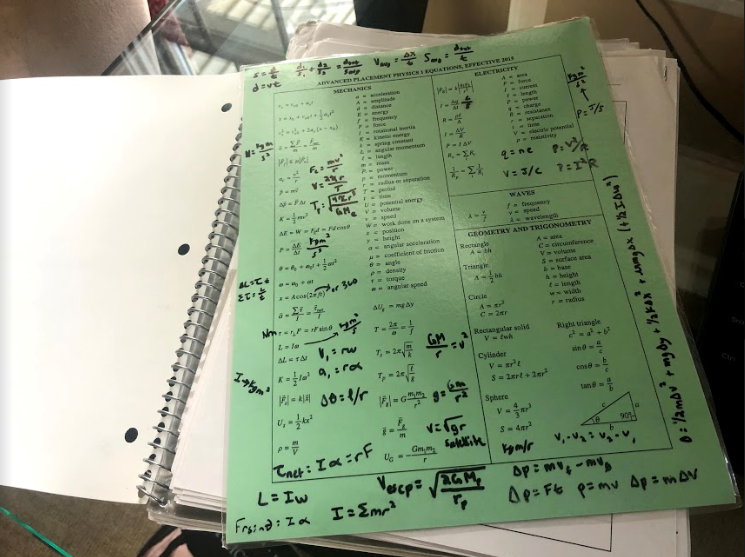Every year, Pleasant Valley eighth-graders have to make a very important decision about their highschool career— whether or not they will choose to take the honors science track or not.
Unlike the honors math or honors English tracks, students cannot drop the honors science track without having to start science completely over. This is all because of a law change that was made in the 2015-2016 school year, which made earth science a required course to graduate from Iowa public schools beginning in the 2016-2017 school year.
Because of this law change, PV had to make a change in their honors science track. Before this law, students could take honors biology freshman year then drop to regular chemistry and physics for the next years and still graduate. Now, it’s not that easy for students.
Because students must be taught the earth science standards to graduate, PV decided to split the earth science standards into the three honors track courses—honors biology, honors chemistry, and AP physics. In doing this, students could skip earth science and proceed through the honors courses and learn the necessary earth science standards for the graduation requirement. When written out like that it sounds like a smart plan, that is, until it plays out in real life.
In eighth grade, students have the choice of whether they would like to partake in the honors science track or the regular track. This means that in junior high, students have to decide if they have what it takes to succeed in not only honors biology and chemistry but in AP physics as well.
“There’s nothing that would have been able to prepare me for AP physics,” senior Katie Gropel stated. “Honors biology and chemistry weren’t too hard, but AP physics was a whole new level of hard that eighth grade me wasn’t expecting.”
Compared to the other two honors track courses, AP physics is drastically harder. Not that that’s a bad thing—it’s a great challenging course and is taught by an amazing teacher—but a lot of kids are not prepared for that drastic of a change out of the blue. On top of that, many panic as they realize that they don’t have the option to drop it.
AP physics is a very grueling class; to keep an A it takes endless hours of studying and practicing. Sometimes, it takes so much time that students lack in other classes just trying to keep up with the material. Often, many students feel content as long as they can just keep a C.
Students who are getting C’s in AP physics are students who could have gotten A’s in regular physics, which would have done better for their cumulative GPA. It’s really just not fair to the eighth graders that had to make the decision to take that class without being able to grow up a little bit first. They should be able to learn more about themselves and their abilities before they make the decision to put themselves up for as big of a challenge as AP physics.
This article is not to scare kids from taking AP physics; if anything, it’s one of the most educationally and mentally rewarding classes that PV offers. It teaches students that they’re smarter than they think they are, and that hard work is a much more important skill than natural smarts.
This article is, however, trying to get PV to make a change in their curriculum for the honors science track. As of right now, the earth science standards are spread between the three honors classes. In many ways, it would be beneficial to cover these standards in regular science classes too.
In the honors courses, it’s impossible to tell that the earth science standards are even included, to begin with. It’s likely not hard to do that with the regular courses too. Doing this would give students who take the honors science track a chance to grow up a little bit before they decide to keep going—just like how it is in the honors math and English tracks.
Not only would it give honors students more flexibility, but if these standards were taught in all the regular science courses, regular students could have the option to skip earth science their freshman year so they can have more freedom in their classes senior year.
Biology, chemistry, and physics are required for highschool graduation, but because most students take earth science freshman year, they don’t have any flexibility to choose another science course of interest for their senior year.
If this were to change, more students would be able to enroll in the non-required science courses, and more students would be saved from the pitfall many of them experience once they finally reach AP physics their junior year. This little change in freedom could truly allow the students to commit to the excellence that their school expects from them.









